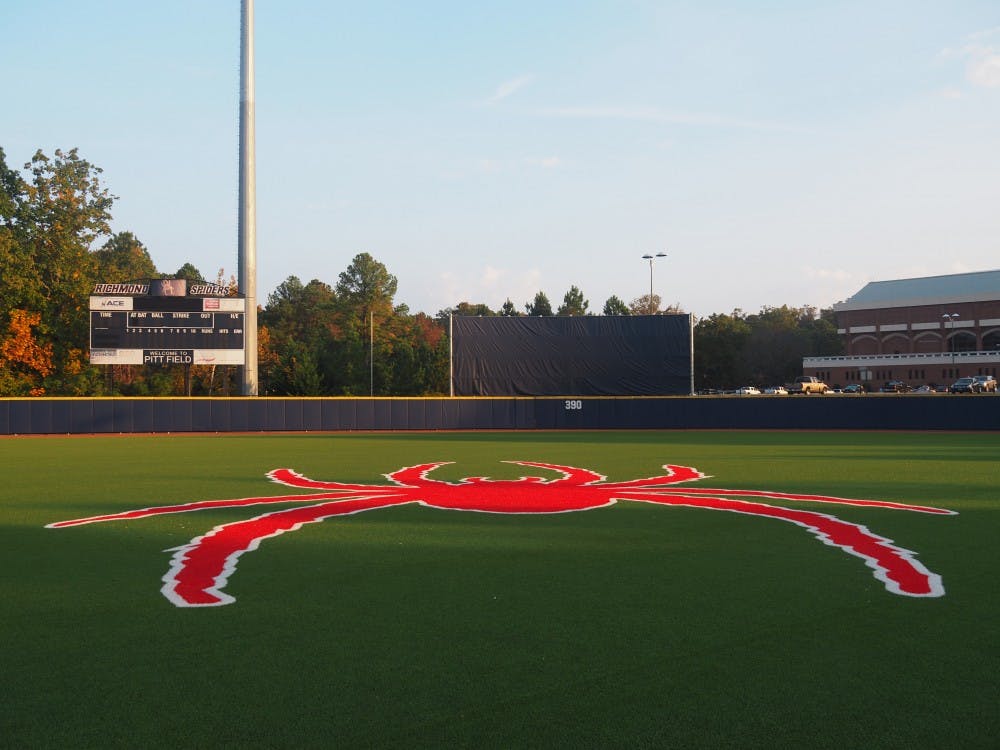At the University of Richmond and beyond, athletes who dream of playing professional baseball work tirelessly to keep those hopes alive in the face of challenges new and old.
The issues associated with playing professionally became more pronounced when the COVID-19 pandemic prompted changes to the minor league system and exposed its less glamorous aspects. Opportunities have decreased, as Major League Baseball pared down the minor league system from 160 to 120 teams in 2020. In the meantime, several organizations advocating for better minor league wages, such as Advocates for Minor Leaguers and Adopt a Minor Leaguer, have drawn attention to themselves.
Despite the possible hardships, the dream of playing professional baseball compels many athletes to persevere. The Minnesota Twins drafted Kyle Schmidt, who graduated from UR in 2019, into its organization. He currently plays for the Cedar Rapids Kernels, the Twins’ High-A affiliate. He is happy to be living his dream of playing professionally, he said.
“Obviously, sometimes we talk about the pay and everything else, and it’s not necessarily what we would want to have,” Schmidt said. “But we do have an opportunity to do something that most other people in the world of baseball don't get to do.”
The financial struggles of many minor league players are often not intuitive to the public.
“I think a lot of people assume that just because we’re playing professional baseball, that means we’re loaded,” Schmidt said.
In reality, minor league players can be paid anywhere from a minimum of $400 per week at the rookie level to a minimum of $700 per week in Triple-A.
Schmidt, who has a degree in business administration, operates two businesses in addition to playing baseball: Backwood Pine, a freelance photography brand, and KGS Baseball, a baseball instruction and training program that Schmidt co-founded with a roommate who also plays professional baseball. Schmidt developed KGS not only to supplement his income, but to blend his passions of baseball and business, he said.
Working multiple jobs is not foreign to many minor league players. Anthony Shew, the chief technology officer of the nonprofit organization Adopt a Minor Leaguer, began his career in web development while he was playing in the St. Louis Cardinals organization.
“When I got my first paycheck and saw it was 300 something dollars, I was like, ‘Oh, okay, I need to figure out how to make money,'" Shew said.
He also recounted moonlighting as a web developer while playing baseball.
“I would miss out on sleep because I was having to pay my bills at home with web development work,” he said.
Enjoy what you're reading?
Signup for our newsletter
Shew connected with a sponsor as a minor league player and went on to help build a website for Adopt a Minor Leaguer, eventually joining full-time. As of September, the organization has partnered 704 athletes with sponsors who are encouraged to send players care packages, grocery money and more.
UR head baseball coach Tracy Woodson tries to be frank with players about the realities of professional baseball while still encouraging them to pursue their passions, he said.
“It’s a dream for a lot of these guys, and you never want to take that dream away,” Woodson said. “But I do tell them the reality, the, ‘Look, this may not be long, and there’s not a lot of money in the minor leagues.’”
Woodson played professional baseball for 14 years and was a manager in the minor leagues for seven years. He also earned a World Series ring with the 1988 Los Angeles Dodgers.
Though he agrees that players should be paid more, he added that progress has been made in the past few decades, since his time playing, toward a mutually beneficial relationship between major league clubs and their minor league players.
“The pay was ridiculous back then,” Woodson said. He referenced the decrease in the number of minor league teams as an incentive for improvement, saying that it gives major league clubs an opportunity to take better care of the minor league players they still have.
Todd Parnell, the chief executive officer of the Richmond Flying Squirrels, also emphasized recent strides made by Major League Baseball in its investments in minor league player wellbeing. The situation has gone from “zero to 60” over his 32 years in professional baseball, he said.
Such changes include less frequent travel and more team buses to create more comfortable traveling experiences for the athletes, Parnell added.
Though the Flying Squirrels, like all minor league teams, were deprived of a 2020 season, Parnell credited the Richmond community with helping to deliver a successful 2021 campaign. Returning to baseball, he said, was a blessing for both parties.
“I can't tell you how many times, particularly during last week’s homestand, that a fan came up to me and said, ‘Man, just having you guys back really helped us get through COVID,’” Parnell said.
Shew agreed that baseball brings communities together in a special way.
“Something that always kept me going was the kids in the stands,” Shew said. “To get to be somebody’s hero for a little bit, that was always nice.”
But being a hero often requires sacrifice.
“What people sometimes forget is that we're human beings, and we have families and feelings and emotions and off-the-field needs, even though you get to see the best of us on the field,” Shew said.
Contact contributor Sage Watterson at sage.watterson@richmond.edu.
Support independent student media
You can make a tax-deductible donation by clicking the button below, which takes you to our secure PayPal account. The page is set up to receive contributions in whatever amount you designate. We look forward to using the money we raise to further our mission of providing honest and accurate information to students, faculty, staff, alumni and others in the general public.
Donate Now



